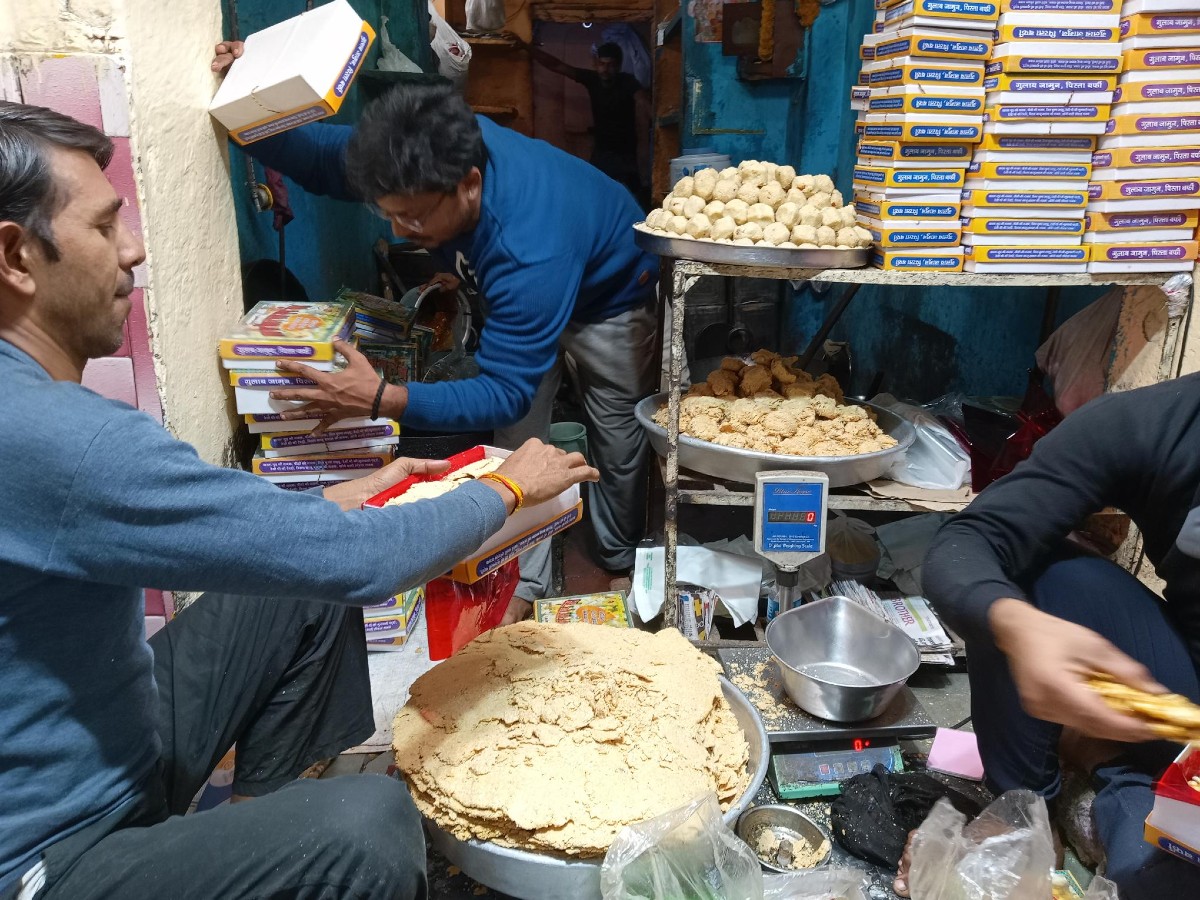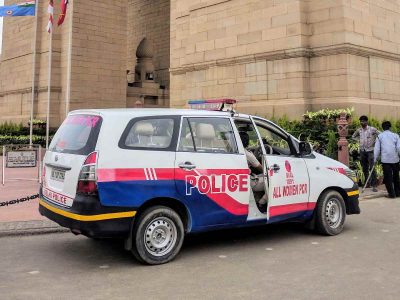Winter brings with it a range of delicacies to Delhi — from fragrant dill leaves (soy saag), colourful carrots to sesame seeds, which are converted to a range of sweets that leave people enchanted, as well as warm from inside. In fact, it is difficult to imagine winters in Delhi without sesame seeds.
Sesame products can be easily spotted everywhere — with street vendors to local grocery stores.
But it is Lala Ram Kishan Das & Sons that holds a treasure of sesame in Delhi.
With every century, the lanes of old Delhi witnessed infinite changes. While havelis collapsed, marketplaces sprawled. But the legacy of its old-timer food gems remained intact. One such is Lala Ram Kishan Das & Sons whose popularity never fell.
Also read: A kingdom of fish in Delhi
Tucked inside the bustling bylanes of old Delhi, the tiny sweet shop offers a riveting variety of mithai made with sesame seeds.
The inventory is long – crunchy til-gur (sesame with jaggery) gajak, sesame roll with khoa (semi-dehydrated condensed milk) packed inside, sesame revdi, sesame laddu, sesame khasta, gur-til biscuit and 10 other items. All winter exclusive.

In 1897, Lala Ram Kishan Das opened the small sweet and snack corner in the Rodgraan pocket of Lal Kuan in old Delhi. He named it after himself.
Over the next 125 years, the horizon expanded with loyal customers flocking to the shop to get their hands on their favourite sweets.
“We open at 6 am and close around 12:30 am – 1 am. All our supplies are fresh and made during these 19 hours that we run the shop,” says Monish Gupta, the great-grandson of Lala Ram Kishan Das.
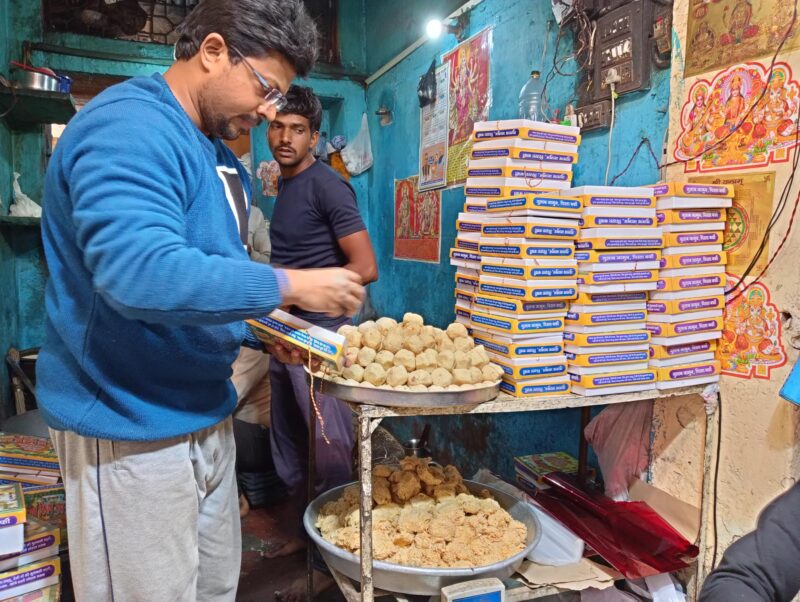
Monish was 12 when he joined the family business. For the past 20 years, he has been assisting his father in running the sweet shop.
It is always a busy day at the shop, which is always surrounded by a crowd of drooling customers yelling their favourites to be packed and handed over to them. One would feel lucky to find an inch of space to stand there, such is the rush.
While gajak and revdi are sold out quickly, the laddus cast a spell over the heart and the unique sesame rolls leave one mesmerised by the combination of a bittersweet taste.
“We have dozens of people making these sweets all the time. While some of them are from Delhi, others are from Madhya Pradesh,” Monish says.
In safe custody
The business has been passed down to Monish from his father Hajari Laal Gupta and his grandfather Lala Lakshmi Narayan, who received it from great-grandfather and founder Lala Ram Kishan Das.
While sesame products are the most sought-after items during winter, they are replaced in summer with namkeen (savoury snacks) like bread-pakora, aloo-puri, kachori-aloo, samosa and other similar fried dishes.
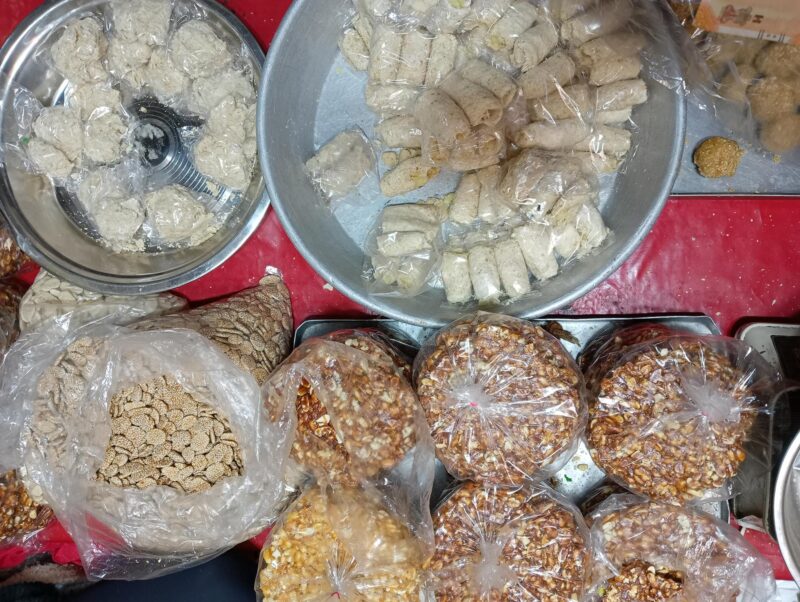
“During summer, sesame products come down to zero. But November onwards, it’s all about sesame seeds and the craze remains till March,” says the 32-year-old.
Walking past the shop, the cacophony of “bhaiyya gajak” is unmissable as customers fill their bags with sweets weighing in kilograms.
Less than a kilometre away, inside the Khari Baoli market, packs of Til Bugga (sesame and nut fudge) are being sold in bulk at Pankaj Petha Bhandaar.
“We start making these soon after Diwali and demand begins to pour from November. The demand is good during these two months (November – December), but it peaks in January during Lohri as it is one of the main ingredients of the festival. After Lohri, we completely stop selling this because the demand falls sharply,” says Rishi, as he shouts out the prices of sweets to woo customers.
At Pankaj Petha Bhandaar, around 60 boxes are sold every day. Each box weighs three kilograms.
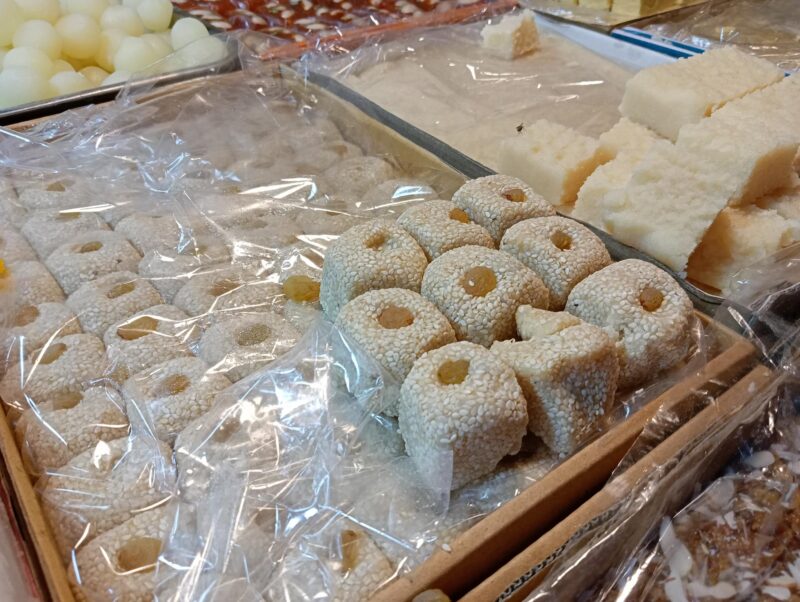
“These (til buggas) are made with khoa and sesame seeds. We make khoa doughs and kneed them in nuts that are grinded to powder form and add sugar. Then we shape these sticky doughs by rolling them into balls and dip them in a bed of roasted sesame seeds. In the end, we garnish with one raisin on top and pack them,” he says.
Selling it raw
At the end of the market, Sanjay sits with jars of sesame seeds along with a wide variety of spices.
“Sesame seeds are sold only in winter in Delhi. It’s so hot here during the summer, who would want to buy sesame seeds when it is burning outside? Even though we keep them round the year, there is no demand for eight months,” the 46-year-old says.
In comparison to 200 kilos of sesame seeds that Sanjay sells in a span of five months (November – March), the quantity moves barely 30 kilos in the rest of the seven months.
The Capital’s streets usually have hawkers selling warm crispy snacks made out of puffed rice, peanuts, a variety of sev with a huge black cauldron over fire to continuously roast the items.
They are found in every corner of the Capital.
“Mostly, it is either til-gajaks or til-gur chikkis that we add to the items we sell as winter arrives. It is always a pleasure to see children dragging their parents to our stall for these gajaks, and the grown-ups buying both taste and childhood memories,” says Alam, a vendor at the New Friend’s Colony crossing.
While the demand for sesame seeds is restricted to winters, its nutritional value for the human body is not seasonal and remains high all through the year.
Sesame seeds are a good source of several nutrients including zinc, selenium, copper, iron, vitamin B6, and vitamin E. These are important for immune system function.
“Sesame seeds are full of calcium that supports healthy bones. In fact, we advise those that cannot take curd to eat sesame seeds. Also, it aids in good blood cell formation, digestion process and is rich in antioxidants,” says wellness expert and founder of OneHealth, Dr Shikha Sharma.
“A 3-tablespoon (30-gram) serving of sesame seeds supplies 12% of the RDI (Recommended Dietary Intake) for fibre, which is vital for digestive health. Besides, soaking, roasting, or sprouting sesame seeds can improve absorption of these minerals,” she adds.
Follow us on:
Instagram: instagram.com/thepatriot_in/
Twitter: twitter.com/Patriot_Delhi
Facebook: facebook.com/Thepatriotnewsindia

